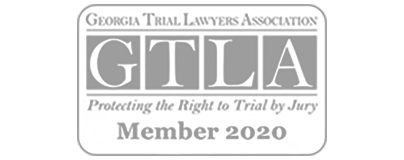Home | Glossary of Personal Injury Terms | Broken Bones
Broken Bones
Broken bones, often perceived as minor injuries, can lead to significant medical intervention and long-lasting effects on one’s life. In fact, nearly 50% of all fractures necessitate orthopedic surgery, resulting in healthcare costs exceeding $10 billion annually for those affected.
The Impact of Broken Bones
Sustaining a fracture can greatly diminish your quality of life. During recovery, individuals must often limit their physical activities, and once healed, they may experience chronic issues such as arthritis. Understanding the implications of a broken bone is crucial, especially for those seeking compensation for the injury’s repercussions.
The Musculoskeletal System — An Overview
The musculoskeletal system serves as the framework of the body, contributing to structure, movement, and strength. It comprises bones and soft tissues, each playing a vital role.
- Minerals, predominantly calcium and phosphorus, construct bones, forming a rigid structure that supports soft tissue.
- Soft Tissues include connective tissues that bind the skeletal structure, as well as muscles and tendons that facilitate movement.
Bones are dynamic; they contain living cells and have microscopic channels that allow blood vessels to supply essential nutrients and oxygen. Furthermore, the bone marrow inside many bones is instrumental in producing red blood cells, white blood cells, and platelets, which are crucial components of the circulatory system.
Common Causes of Bone Fractures
Bone fractures occur when external forces exceed the bone’s strength. The primary causes include:
Repetitive Stress
Continuous stress on bones can lead to micro-cracks. While resting allows for healing, persistent stress without adequate recovery can escalate these cracks into full fractures. Repetitive motions in occupations often cause these injuries.
Impact
A sudden, forceful impact can break a bone. For example, in a pedestrian accident, a victim may fracture a bone during the initial collision and again upon hitting the ground.
Crushing Forces
These forces typically affect a larger area and are common in workplace accidents, such as being struck by falling objects or getting caught between heavy machinery. Crushing injuries can result in multiple fractures or shattering of bones.
Classes of Broken Bones
Medical professionals categorize fractures based on three main criteria, which help in determining treatment and prognosis.
Displaced vs Non-Displaced Fractures
- Non-Displaced Fractures. The bone fragments remain aligned. Typically, treatment consists of immobilizing the affected area with a cast.
- Displaced Fractures. Bone fragments are out of alignment, necessitating realignment before stabilization, which may involve surgical intervention.
Open vs Closed Fractures
- Closed Fractures. No external wounds are present.
- Open (Compound) Fractures. The bone has pierced the skin, posing a risk of infection and often requiring surgery to realign the bone and close the wound.
Fracture Pattern
Fractures can also be classified by their patterns, which influence healing duration.
- Comminuted Fracture. The bone shatters into three or more pieces, often requiring surgical reconstruction and a lengthy healing process.
- Avulsion Fracture. A fragment of bone breaks off with a tendon or ligament, potentially leading to joint issues if it occurs near a joint.

GEORGIA PERSONAL INJURY LAWYER NEAR ME
Seeking Compensation for Broken Bones
If negligence has led to your injury, you may be entitled to compensation.
- Economic Losses. Medical expenses, lost wages, and reduced earning capacity due to long-term disabilities.
- Non-Economic Losses. Compensation for pain, emotional distress, and loss of enjoyment in life.
Fractures can hinder your ability to work, complicating financial matters and making it difficult to afford necessary medical treatments. If you are in the South Atlanta area and need guidance on pursuing compensation for a bone injury, consider reaching out to legal experts like The Jewkes Firm for a free consultation at (770) 771-5130.
GET A FREE CASE REVIEW
PRACTICE AREAS
Frequently Asked Questions?
Do I need a personal injury attorney?
The Jewkes Firm is well-versed in effectively challenging major insurance companies on your behalf to secure the highest settlement permissible by law. Our primary objective is to ensure your optimal recovery. It is only after this point that we assess the worth of your case.
What is the deadline for filing an injury case in Georgia?
The timeframe for filing an injury case, also known as the statute of limitations, can vary significantly. As per OCGA §9-3-33, you are granted a two-year period from the date of your injuries or the passing of a family member to initiate your personal injury claim.
What is the cost to hire a personal injury attorney?
There is no upfront cost associated with hiring a personal injury lawyer. Our fees are based on a percentage of your settlement, meaning you only pay if we successfully recover compensation. Our top priority is ensuring your well-being and helping you return to your normal life.
What damages can you recover from a personal injury?
A personal injury lawyer aims to establish negligence and seek restitution for the harm caused by the liable party. Additionally, you may be entitled to compensation for funeral costs, medical expenses, and income lost if you are a family member of someone who died as a result of an injury.
Free Case Evaluation











